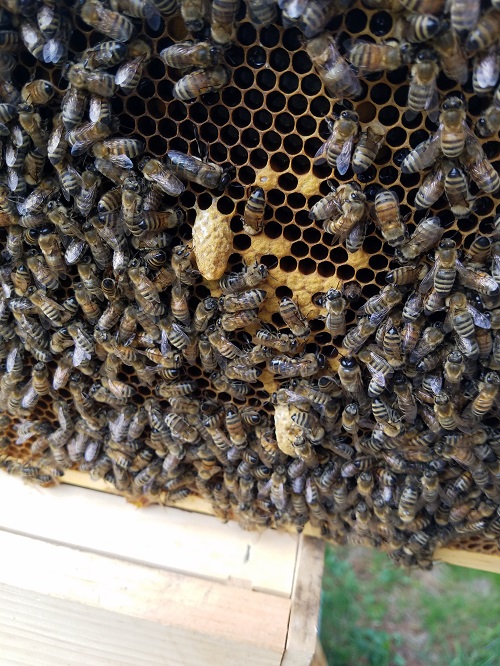You want to be a beekeeper
So you want to be a beekeeper, after all honey is healthy, bees are dying for all sorts of reasons and need a champion like you. There is a store right done the street that sells the equipment you will need and Facebook Marketplace has sellers that “can hook you up with bees”. The stars are aligned, everything you need is at hand, just set up the store bought hive, pick up the bees from Facebook guy and … free honey!! The ultimate impulse buy, 25,000 flying insects that can sting. If this is your game plan, you will probably do more harm than good. You may get your “free honey” after spending close to $500.00 for equipment and bees but without working the bees and caring for them you may create a parasite/pathogen vector that will infect not only other beekeepers’ bees but also wild bees and worse of all, your hive will probably die.

Ok, that’s about as negative as I can make it and that was close to my failure except I can add that I read books about beekeeping, went to seminars, asked questions at the bee store and knew the beekeeping buzz words. I got honey and my bees died. With that loss I jumped into what I missed. I joined a local bee club and spoke with an experienced beekeeper about helping me get better. With that conversation I found a mentor who became a friend.
The mentor, and a great one at that, was the key. One summer and autumn of helping him work bees and he coming to my apiary and instructing me on things to watch and present ideas of what to do in addition to what I was doing made all the difference. The biggest lesson learned was the dedication necessary to the bees. If you want to be a beekeeper, you cannot plop them down, look two times during the year and expect success. After setting up your hives comes the work (and dedication). You should try to open your hive at least once every other week. Know what you are looking at, learn to take time and know every once in a while you will get stung. You will need to take the time and check for small hive beetles, ants, wax moths and other not very nice insects. You will want to know how to check for varroa mites and make the time to do it. You will need to know how to use medications, when to use them and when not to use them. You will need to know how to set the hive (s) up for winter and how to open in the spring. I can go on with more, but you should get the picture now.
With all the work and dedication comes the good. 50 lbs. – 100 lbs. (4 to 9 gallons) of honey per year per hive if all goes well (year 1 expect very little). What we harvest we use – our kids take home a gallon or so each, neighbors and friends are spoiled. With the honey comes bees wax for soap, lip balm, candles, etc. I find joy in sitting and watching the bees doing what bees do. My flowers and vegetables get pollinated. It is amazing to witness a “super-organism” at work. A queen laying eggs, workers feeding larvae, bees hatching, a scout bee coming back to the hive to perform the “waggle dance” are the best shows in town to watch. You may open a hive and see queen cells – are they supersedure cells? Are they swarm cells? I find it very rewarding keeping bees and trying to do it well. So…you want to be a beekeeper…